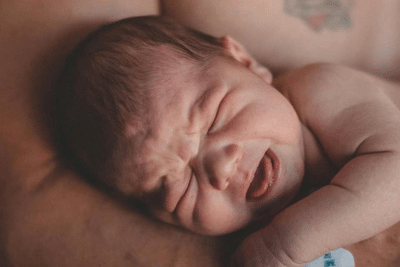Baby Poop: A baby's first bowel movement after birth may seem trivial, but it's a treasure trove for scientists. Let us explain how it can reveal a child's health.

What can you tell from your baby's first stool?
How Baby Poop Shows Health: A baby's first bowel movement after birth may seem trivial, but for scientists, it's a treasure trove. Hidden within this tiny poop are many important secrets about a child's future health. In 2017, scientists at a laboratory at Queen's Hospital in London waited for mail every day. Inside those envelopes, they found small packets containing samples of newborn babies' bowel movements, lovingly sent by their parents. This was part of a larger scientific project, the "Baby Biome Study," in which researchers were trying to understand how the gut microbiome formed in a child's body affects their health throughout their lives. The study analyzed the bowel movements of approximately 3,500 newborns between 2016 and 2017. The results were astonishing. Let's take a look at them.
What do experts say?
Professor Nigel Field of University College London explains, "At birth, a baby's body is completely sterile. Microbes begin to colonize its intestines three to four days after birth. This is the moment when its body first becomes acquainted with external bacteria and lays the foundation for its immune system." In fact, when a baby is in its mother's womb, there are no bacteria present there. When it comes out of its mother's body at birth, it first encounters the microbes that will later colonize its intestines. Experts say that these bacteria mostly come from the mother's digestive tract, not the vagina as previously believed.
What have scientists said about this?
Archita Mishra, a scientist at the University of Sydney, Australia, says, "The initial bacteria in a child's gut microbiome are like the architects of their immune system. They teach the body which substances are harmful and which are not. These same bacteria later influence allergies, infections, and even vaccine responses." The bacteria that colonize a child's intestines during the first six to twelve months determine their health, such as their susceptibility to allergies, their digestive system's strength, and their ability to absorb food. According to scientists, the first thousand days of life are the most crucial. The foundation laid for the gut microbiome during these days has an impact that lasts for decades to come.
What did the research reveal?
Field research also shows that newborns whose guts develop the right bacteria in the first weeks of life are better able to fight viral infections and immune deficiencies later in life. This means that a baby's first stool isn't just waste, but a health report, revealing how their body is developing internally, how strong their immunity is, and how resilient they will be to future illnesses.
You may also like

ITV Emmerdale icon returns three years after on-screen death in Robert and Kev twist

The £1,300 bill hitting Brits - and how to check eligibility to cut costs to £0

Audi unveil new F1 car livery and make bold promise ahead of 2026 season

I'm A Celebrity shares first look at 2025 camp - luxury beds to grim showers

India sees 21% dip in TB cases but has 25% of new patients globally







